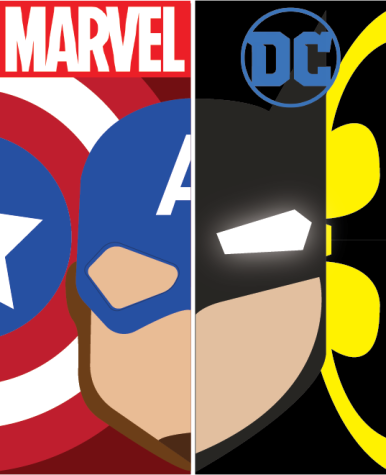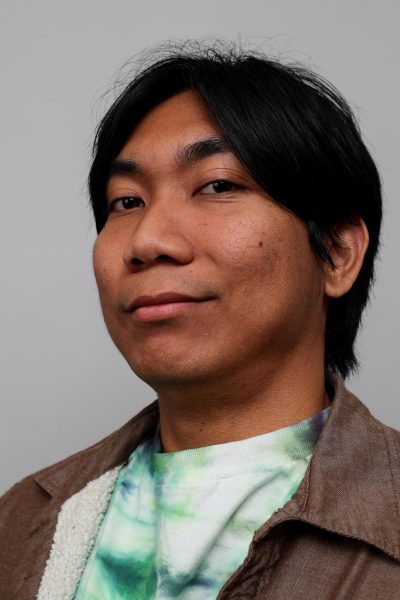Heroes among us
Choosing between Marvel and DC
November 19, 2021

The world needs heroes. It needs people to look up to, people who inspire humanity, people who keep everyone safe. The real world has no shortage of heroes; however, some prefer to be inspired by a world beyond reality.
Superheroes have become a necessity in pop culture, and, especially in recent years, have developed diverse communities of fans and cultures all their own. Living in a world of association, calling oneself a superhero fan means specializing in a particular universe. This is the ultimate choice every fan today has to make: Marvel or DC?
Freshman music therapy major Christopher Torres made his decision based on Marvel’s ability to translate their characters to present-day over DC’s.
“I feel like DC is stuck in the past, and Marvel is just going to keep moving forward. They have a better idea of what they want to accomplish,” said Torres.
Entertainment is not the only avenue for science fiction and fantasy. Generations have looked to comic book heroes for inspiration and comfort. Heroes like Spider-Man, the X-Men, the Titans and the Bat Family have taught life lessons about loyalty, family values, redemption, responsibility and prejudice.
Marvel certainly wins the popularity contest due to its successful cinematic universe. Many superhero fans today literally grew up watching the journey of the Marvel Cinematic Universe (MCU) from “Iron Man” to “Eternals.” Despite its best efforts, the DC Extended Universe (DCEU) has failed to reach similar status.
Freshman special education major Brittany Berger speculated on this success gap.
“This is just because Marvel is more connected. They [can all be] associated one way or another,” Berger said.
The DC Universe focuses its attention on more stand-alone storylines, as opposed to Marvel’s emphasis on connectivity. The sense of everything tying together appeared to be a deciding factor in holding one’s favor, such as for freshman visual communications major Ethan Ortega.
“After seeing [‘The Dark Knight’] trilogy, I didn’t want to go check out any other DC movies, because I didn’t feel like they were as connected,” said Ortega.
Although their narratives may not always connect with one another’s, DC superheroes such as Batman, Nightwing and Huntress are viewed in high esteem because of their peak-human capabilities, admirable sense of justice and belief in humanity. Freshman nursing major James Borja favored Batman particularly for this reason.
“Batman…is a more realistic hero than anything else. Maybe his problems weren’t as relatable to everyone, but he was that human that portrayed humanity at its best,” said Borja.
Another deciding factor for Borja appears to be the systems of power. Marvel and DC both have very diverse lineups; no hero is exactly the same. But DC establishes rules, limitations and explanations that Marvel often does not.
“Marvel is multifaceted and doesn’t really mesh together. There’s no finite [to Marvel] in how their powers work. In DC, there is always a weakness everyone can exploit. DC just has rules and standards to follow,” said Borja.
Humans trying to achieve a higher purpose is nothing new. The Avengers often question their capability as superhumans, as their enemies often overpower them. The Justice League is more often outsmarted by their adversaries than overpowered.
The question is not what these heroes are capable of, but whether or not they allow their weaknesses to win, and that inner battle in both Marvel and DC characters allows for entertaining, relatable stories that are each super in their own way.
“Entertainment is one of the most important things in people’s lives. Without it, they might go off the deep end. I feel that if you’re able to entertain people, you’re doing a good thing.”
-Stan Lee, co-creator of Marvel



























































































